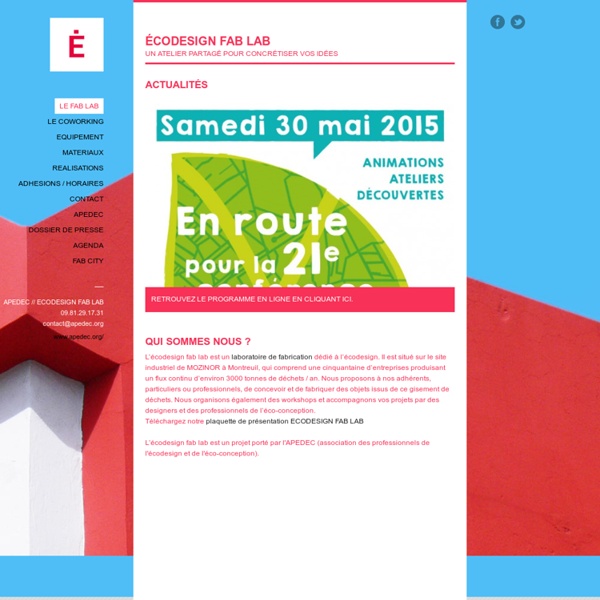



Carte des fablabs | GO TRONIC Qu'est-ce qu'un FabLab ? C’est un laboratoire de fabrication où l’on peut trouver du matériel de conception et de fabrication assistée par ordinateur à disposition des passionnés d’électronique, de bricolage ou plus généralement de DIY (« Do It Yourself »). Qu’il s’agisse d’imprimer des objets en 3D, de fabriquer des robots, une télécommande universelle pour éteindre les écrans de télévision à distance (comme la TV-Be-Gone) ou encore de permettre à une plante de tweeter lorsqu’elle a soif… les FabLabs sont un environnement idéal pour apprendre à bricoler, hacker ou réaliser des projets collaboratifs. Pourquoi cette carte ? La culture du hack Le hacking, trop souvent confondu avec le piratage, est une culture de l’informatique et de l’électronique ayant pour but de résoudre des problèmes, souvent en identifiant les vulnérabilités d’un système. HackerSpaces et FabLabs Les HackerSpaces sont des laboratoires orientés vers la communauté du hack et l’échange d’information et de connaissances.
C’est quoi un fablab en 20 définitions L’univers des fablabs a son vocabulaire propre : ses termes, expressions et mots-clés dont la plupart ont une origine anglo-saxonne avec la volonté de les franciser. Mais que se cache t-il comme définitions derrière ces termes ? Le FabLab de Rennes a établi un glossaire régulièrement mis à jour des mots de l’écosystème des fablabs (laboratoires de fabrication) et labs. Fin janvier 2014, ce mini-dictionnaire compte déjà 20 termes autour « de l’électronique libre et de l’innovation ouverte ». Licence : Creative Commons by-nc-saGéographie : Bretagne Tags: fablab, glossaire, Innovation Posté par Jean-Luc Raymond le lundi 27 janvier 2014 Crédit média : MIT Catégories : Actions innovantes, Blog NetPublic, Création multimédia, Culture, éducation, Formation numérique, Initiatives des territoires, Initiatives NetPublic, Lieux partagés, Ressources NetPublic